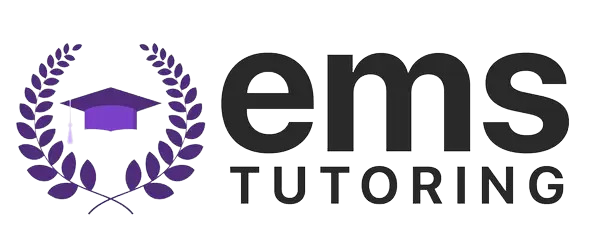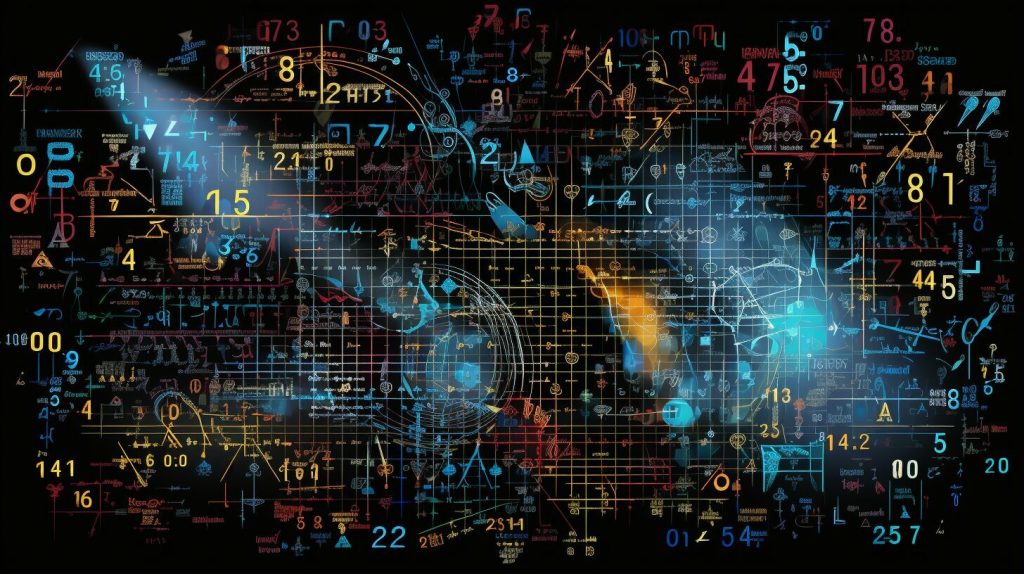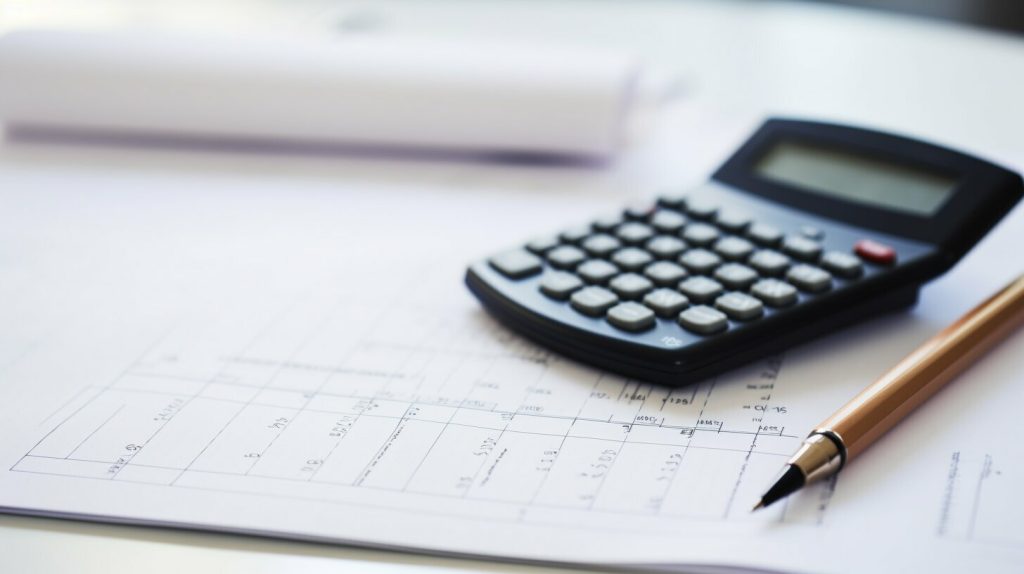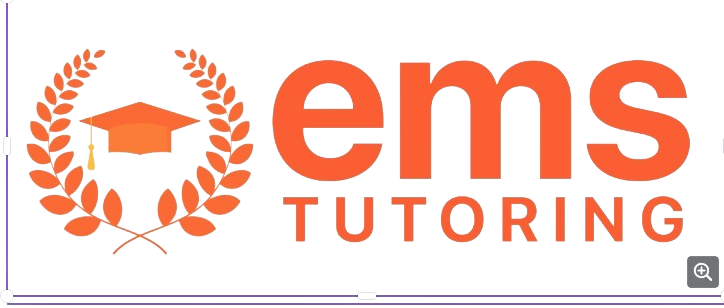How to Pass GCSE Maths in 2004

In 2024, GCSE exams will return to their pre-pandemic structure, with formula sheets no longer provided. Students will need to commit certain formulae to memory. It is important to focus on key topics that are frequently assessed in the exams to maximize revision time and improve performance.
Key Takeaways:
Develop a solid foundation in basic calculation skills.
Master algebraic manipulation techniques.
Enhance problem-solving abilities.
Strengthen procedural skills in geometry and numbers.
Understand statistics, probability, and advanced topics.
The Importance of Basic Maths Calculation Skills
Strong basic calculation skills are essential for success in GCSE Maths exams in 2024. Students need to be able to work quickly and accurately with numbers, including negatives, fractions, decimals, percentages, and ratios. Having a solid foundation in basic arithmetic operations is crucial for tackling more complex mathematical concepts and problems.
Topics such as standard form, HCF and LCM, powers and roots, and error intervals are frequently assessed in GCSE Maths exams and require procedural arithmetic calculations. Students should be comfortable performing calculations involving these topics to maximize their chances of achieving high marks.
Developing proficiency in basic calculations not only allows students to solve mathematical problems efficiently, but it also builds confidence in their mathematical abilities. Practicing mental calculations and working with numbers regularly can greatly improve students’ speed and accuracy, enabling them to approach exam questions with ease. Regular revision and practice of basic calculation skills are key to achieving success in GCSE Maths exams in 2024.
“A strong foundation in basic calculation skills is the key to unlocking success in GCSE Maths exams. Students need to be comfortable working with numbers and performing arithmetic calculations accurately and efficiently. This will not only improve their performance in exams but also build confidence in their mathematical abilities.”
Obtain an excellent online GCSE tutor
As a student, you want to find the best possible GCSE math resources online to help you succeed in your studies. You also want to be able to find a tutor who can help you with your math revision and prepare you for your GCSE math exams in 2024.
There are a few things that you should keep in mind when you are looking for an online GCSE math tutor. First of all, you want to make sure that the tutor is knowledgeable and experienced in the field of mathematics. Secondly, you want to make sure that the tutor is able to give you the individual attention that you need to succeed.
There are a number of different ways that you can find an online GCSE math tutor. A good place to start is by asking your friends or family members if they know of anyone who could help you. You can also search online for tutors who specialize in helping students with their GCSE maths revision and preparing for exams.
If you want to be sure that you are getting the best possible help, you should consider hiring a professional online GCSE math tutor. These tutors are usually very experienced and knowledgeable in the field of mathematics. They will be able to give you the individual attention that you need to succeed.
When you are looking for an online GCSE math tutor, make sure to keep these things in mind. With a little bit of effort, you should be able to find a tutor who can help you succeed in your studies. We recommend EMS Online Tutoring
Mastering Algebraic Manipulation
Algebraic skills are an essential part of the GCSE Math curriculum 2024, requiring students to simplify, expand, factorise, and solve equations and inequalities. These skills play a significant role in the exams, so it’s crucial for students to master them for success. Topics such as algebraic fractions, linear and quadratic equations, and graph skills are fundamental and frequently assessed.
One important aspect of algebraic manipulation is the ability to form equations from contextual problems. This skill allows students to translate real-world situations into mathematical expressions, enabling them to solve problems effectively. Additionally, understanding how to solve systems of simultaneous equations is vital for tackling more complex math problems.
To further enhance students’ understanding and proficiency in algebraic manipulation, there are various GCSE math resources available. These resources can provide additional practice exercises, step-by-step explanations, and worked examples that reinforce the concepts and techniques needed for success in the exams. Engaging with these resources can help students develop their confidence and fluency in algebraic manipulation.
To summarize, mastering algebraic manipulation is crucial for success in GCSE Math exams. Students should focus on topics such as algebraic fractions, linear and quadratic equations, and graph skills. Developing the ability to form equations from contexts and solve systems of simultaneous equations is also important. By utilizing GCSE math resources and engaging in regular practice, students can strengthen their algebraic skills and improve their performance in the exams.
Example Table: Algebraic Manipulation Techniques
| Technique | Description |
|---|---|
| Simplifying Algebraic Expressions | Combining like terms, removing brackets and simplifying fractions. |
| Expanding Brackets | Multiplying each term inside the bracket by the term outside the bracket. |
| Factorising Algebraic Expressions | Finding the greatest common factor and expressing the expression as a product of factors. |
| Solving Linear Equations isolating | g the variable to find its value, often involving multiplication, division, addition, or subtraction. |
| Solving Quadratic Equations | Using factoring, completing the square, or the quadratic formula to find the solutions. |
| Graphing Linear Equations | Plotting points, drawing lines, and interpreting information from the graph. |
Talk with a maths teacher
Most of the time, students feel shy or embarrassed to talk with their teachers. They may think that their teachers are busy and they don’t want to bother them. However, it is important for students to communicate with their teachers. Here are some tips on how to talk with your teacher:
-Make an appointment: If you want to talk with your teacher about a specific issue, it is best to make an appointment. This way, your teacher can give you their full attention and you will not have to worry about interrupting their class.
-Be prepared: When you meet with your teacher, make sure you are prepared. Have a list of questions or topics you want to discuss. This will help the conversation go more smoothly and you will be more likely to get the information you need.
-Be respectful: Even if you are feeling frustrated or angry, it is important to be respectful when talking with your teacher. Avoid raising your voice or using offensive language. This will only make the situation worse and you are less likely to get the results you want.
Talking with your teacher can be a great way to get help with your studies or to resolve any issues you may be having. By following these tips, you can ensure that the conversation will be productive and successful. Talk with a teacher here!
Developing Proportional Reasoning and Compound Measures
Proportional reasoning and compound measures are important aspects of the GCSE Maths syllabus 2024. These topics require a strong understanding of ratios, as well as the ability to apply mathematical concepts to real-life scenarios. With the removal of formula sheets in the upcoming exams, it is crucial for students to develop their procedural skills in these areas to excel in their performance.
Proportional Reasoning
Proportional reasoning involves understanding the relationship between two or more quantities that change together. This topic is frequently assessed across the Higher Maths papers and requires students to carry out procedural ratio calculations to solve a wide range of questions. A solid foundation in ratio and proportion concepts, such as finding equivalent ratios and solving problems involving direct and inverse proportionality, is essential for success in this area.
Compound Measures
In addition to proportional reasoning, compound measures also play a significant role in the GCSE Maths exams. Compound measures involve combining different measurements or quantities to solve problems. This topic often interweaves with other areas of the syllabus, such as volume and surface area. Students should be able to apply their knowledge of unit conversions and solve problems that involve compound measures, such as speed and density calculations. Understanding the application of these skills in various contexts is crucial for tackling questions in this area.
| Proportional Reasoning | Compound Measures |
|---|---|
| Understanding ratios and proportionality | Application of unit conversions |
| Solving problems involving direct and inverse proportionality | Solving compound measure problems, such as speed and density calculations |
| Carrying out procedural ratio calculations | Interweaving compound measures with other topics, such as volume and surface area |
By developing their proportional reasoning and compound measure skills, students can confidently address exam questions that assess these areas of the GCSE Maths syllabus. Practicing procedural ratio calculations and familiarizing themselves with different types of compound measure problems will enable students to approach these topics with ease and accuracy. With a solid understanding of the concepts and application skills in proportional reasoning and compound measures, students will be well-prepared for success in the upcoming exams.
Applying Problem-Solving Skills
GCSE Maths exams often include problem-solving or rich problems that require the application of mathematical concepts. Students should be able to use topics such as HCF, LCM, product of primes, and standard form to solve complex problems. Developing problem-solving strategies and applying them to different contexts is essential for success.
Problem-solving in GCSE Maths goes beyond simply memorizing formulas and equations. It involves critical thinking and analytical skills to identify the most appropriate mathematical approach. Students need to understand the problem, break it down into smaller, manageable steps, and apply relevant mathematical techniques to find a solution.
“Problem-solving is not only about finding the answer; it’s about the journey of exploration and discovery. It’s about developing a systematic approach, thinking creatively, and having the perseverance to solve complex problems.”
To enhance problem-solving abilities, students should practice solving a variety of problems from different topics. This will help them develop a toolkit of strategies and techniques that can be applied to different scenarios. Students can also benefit from working collaboratively, discussing problems with peers, and seeking guidance from their GCSE Maths tutor.
Examples of Problem-Solving in GCSE Maths:
Here are a few examples of problem-solving scenarios that students may encounter in their GCSE Maths exams:
- Using ratio and proportion to solve real-life problems, such as scaling up recipes or calculating the length of a shadow.
- Applying trigonometric concepts to find the height of a building or the distance between two objects.
- Interpreting and analyzing data sets to draw conclusions and make predictions.
- Using algebraic equations to solve problems involving unknown variables.
By practicing these problem-solving scenarios and developing a strong foundation in mathematical concepts, students can approach GCSE Maths exams with confidence and achieve success.
Emphasizing Procedural Skills in Geometry
Geometry skills are a crucial component of GCSE Maths exams, testing students’ ability to manipulate shapes, lines, and coordinates. By mastering procedural skills in geometry, students can effectively solve problems and achieve success in their exams.
Topics in Geometry
GCSE Maths exams often assess various topics in geometry, including gradients and areas, parallel and perpendicular lines, and coordinate geometry. These topics require students to calculate gradients, find equations of lines, and solve geometry-related problems.
One important skill to develop is the ability to complete the square, which is frequently used in solving quadratic equations and finding the maximum or minimum values of functions. Another essential skill is tackling multi-step coordinate geometry problems, which involve applying multiple concepts and formulas to determine the coordinates of points or the equations of lines.
Importance of Procedural Skills
Procedural skills in geometry are vital because they provide students with the tools to analyse and solve geometric problems. By understanding how to calculate gradients, find equations of lines, and apply geometric formulas, students can approach complex geometry questions with confidence.
“Geometry is not just about shapes and lines; it provides students with critical thinking skills and logical reasoning abilities that are crucial for problem-solving in various fields.”
Table: Essential Procedural Skills in Geometry
| Skill | Description |
|---|---|
| Calculating Gradients | Determining the steepness of a line using the change in y-coordinates over the change in x-coordinates. |
| Equations of Lines | Finding the equation of a line given its gradient and a point on the line or two points on the line. |
| Coordinate Geometry | Applying geometric formulas and concepts to solve problems involving points, lines, and shapes in a coordinate plane. |
| Completing the Square | Rewriting quadratic equations in vertex form to determine the maximum or minimum values of functions. |
Image source: https://seo-writing.ai/32_6.png
The Importance of Procedural Skills in Numbers
Procedural skills in numbers are crucial for success in GCSE Maths exams. Students need to develop a solid foundation in basic arithmetic calculations, including working with fractions, decimals, and percentages. In addition, they should be proficient in using standard form and recurring decimals. These skills are frequently assessed and require accuracy and efficiency in calculations. Strong number skills are essential for tackling higher-level math topics and problem-solving tasks.
Table: Topics in Number Skills
| Topic | Description |
|---|---|
| Standard Form | Understanding and applying numbers written in standard form, including converting between standard form and ordinary numbers. |
| Recurring Decimals | Working with numbers that have repeating decimal patterns, including converting recurring decimals to fractions. |
| Calculator Use | g a calculator effectively to perform complex arithmetic calculations and solve mathematical problems. |
| Error Intervals | Determining the possible range of values for measured quantities based on error intervals and calculating upper and lower bounds. |
| Compound Measures | Applying number skills in the context of compound measures, such as speed, density, and concentration. |
Lower and upper-bound calculations are often assessed and require a solid understanding of error intervals. Students need to be able to calculate the possible range of values for measured quantities and interpret the results in real-world contexts. Additionally, compound measures involve applying multiple number skills to solve problems. For example, calculating speed involves dividing distance by time and may require conversions between units of measurement. Developing strong number skills will enable students to confidently tackle these types of questions.
To enhance procedural skills in number, students should engage in regular practice and revision. Using past exam papers and online resources can provide valuable opportunities to apply and reinforce these skills. Practice testing and solving a variety of numerical problems will help build confidence and improve accuracy. It is essential for students to dedicate sufficient time to mastering number skills to maximize their performance in GCSE Maths exams.
Enhancing Skills in Statistics and Probability
Developing a strong foundation in statistics and probability is crucial for success in GCSE Maths exams in 2024. These topics are frequently assessed and require a thorough understanding of key concepts and problem-solving techniques.
One important aspect of statistics is the interpretation of data. Students should be able to analyse and draw conclusions from different types of data representations, such as tables, graphs, and charts. This skill allows them to extract relevant information and make informed decisions based on the data provided.
Another essential skill is calculating probabilities. Students need to understand the basic principles of probability and be able to apply them in various contexts. This includes calculating the probability of single and combined events, understanding conditional probability, and solving probability problems using tree diagrams.
Key Skills in Statistics and Probability
- Interpreting data representations
- Calculating probabilities
- Applying statistical techniques
Students will also need to apply statistical techniques to solve problems. This involves understanding concepts like mean, median, mode, and range, as well as analysing different measures of spread, such as standard deviation. Being able to apply statistical methods allows students to extract meaningful information from data sets and draw valid conclusions.
Overall, developing strong skills in statistics and probability will not only improve performance in GCSE Maths exams but also equip students with valuable analytical and problem-solving abilities that can be applied in various real-world scenarios.
| Topic | Description |
|---|---|
| Data Interpretation | Analysing and drawing conclusions from data representations |
| Probability | Calculating probabilities of single and combined events |
| Statistical Techniques | Applying mean, median, mode, range, and measures of spread |
Strengthening Problem-Solving Abilities in Advanced Topics
As students prepare for the GCSE Math exams in 2024, it is important to focus on strengthening problem-solving abilities in advanced topics. These topics, including logarithms, functions, trigonometry, and calculus, require a deep understanding of fundamental concepts and formulas. By developing problem-solving skills in these areas, students can confidently tackle complex problems and improve their chances of success in the exams.
One key aspect of problem-solving in advanced topics is the ability to apply relevant techniques to real-world scenarios. For example, understanding logarithmic functions can help solve problems involving exponential growth or decay, while trigonometry is essential for solving problems related to angles and distances. By honing their problem-solving abilities in these areas, students can apply their mathematical knowledge to a wide range of situations.
In addition to mastering the concepts and formulas, students should also focus on developing logical reasoning skills. This involves breaking down complex problems into smaller, more manageable steps, and making connections between different mathematical concepts. By approaching problems systematically and logically, students can effectively solve advanced math problems and demonstrate a deeper understanding of the subject.
Practising with past exam papers and engaging in targeted revision can greatly enhance problem-solving abilities in advanced topics. By analysing and solving a variety of problems, students can familiarize themselves with different problem structures and develop effective problem-solving strategies. Working through these problems also helps students identify any areas where they may need further practice or clarification, allowing them to focus their revision efforts accordingly.
Example Problem-Solving Techniques in Advanced Topics
Here are some example problem-solving techniques that can be applied to advanced topics in GCSE Math:
- Use logarithmic properties to simplify expressions and solve equations involving logarithms.
- Apply the properties of functions to analyse and graph various types of functions, such as linear, quadratic, and exponential functions.
- Utilize trigonometric ratios and identities to solve problems involving angles, distances, and triangles.
- Apply differentiation and integration techniques to solve problems in calculus, such as finding rates of change and areas under curves.
Summary
Strengthening problem-solving abilities in advanced topics is crucial for success in the GCSE Math exams. By developing a deep understanding of fundamental concepts, applying relevant techniques to real-world scenarios, and practicing problem-solving with targeted revision, students can improve their problem-solving skills and confidently tackle complex mathematical problems. By focusing on these advanced topics, students can enhance their overall performance in the exams and demonstrate their mastery of mathematics.
Effective Revision Techniques
When it comes to preparing for the GCSE Maths exams in 2024, effective revision techniques are crucial to maximize your chances of success. While everyone has their own preferred study methods, certain strategies have been proven to be particularly effective in helping students retain information and improve their understanding of key concepts. Two highly recommended techniques are practice testing and distributed practice.
Practice testing involves actively recalling information from memory, such as answering questions from past exam papers, solving problems, or using flashcards. This method helps reinforce your knowledge, identify areas that require further study, and build confidence in your abilities. By regularly engaging in practice testing, you can improve your recall and problem-solving skills, which are essential for exam success.
| Effective Revision Techniques | Benefits |
|---|---|
| Practice Testing | Reinforces knowledge, identifies areas for improvement, builds confidence |
| Distributed Practice | Enhances retention, prevents procrastination, allows for deeper understanding |
Distributed practice involves spacing out your revision sessions over time, rather than cramming all your studying into a single session. This approach has been shown to enhance long-term retention and prevent the forgetting of important information. By interleaving different topics during your revision sessions, you can also foster a deeper understanding of how different concepts relate to each other, further strengthening your overall knowledge.
To make the most of your revision time, it is important to create a study plan that outlines specific goals and targets for each session. This will help you stay organized and focused, ensuring that you cover all the necessary topics before the exams. Additionally, finding a suitable study environment that is free from distractions can greatly enhance your concentration and productivity.
Obtain a good study guide
As a high school student, you are probably wondering how you can get a good study guide for the upcoming school year. After all, you want to be prepared for your exams and get good grades. Here are a few tips on how to find a good study guide for the upcoming school year:
1. Talk to your teacher. Your teacher is a great resource for finding a good study guide. He or she can recommend a specific guide or type of material that will help you prepare for the exams.
2. Check out the library. The library is a great place to find study guides. You can usually find a wide variety of guides, including those specifically for the exams you will be taking.
3. Talk to upperclassmen. If you know any upperclassmen, they can be a great resource for finding study guides. They have likely taken the exams you are preparing for and can recommend a good guide.
4. Search online. There are many websites that offer study guides for a variety of exams. You can likely find a guide that will help you prepare for the exams you will be taking.
5. Get organized. Once you have found a few study guides, take some time to organize them. This will help you make the most of your study time and ensure that you are prepared for the exams.
By following these tips, you can find a good study guide that will help you prepare for the upcoming school year. We recommend: FANTASTIC STUDY GUIDE
Summarized Revision Techniques:
- Engage in regular practice testing by answering past exam questions or using flashcards
- Space out your revision sessions over time to enhance long-term retention
- Interleave different topics to foster a deeper understanding
- Create a study plan to stay organised and focused
- Find a suitable study environment free from distractions
By implementing these effective revision techniques, you can optimize your preparation for the GCSE Maths exams in 2024 and increase your chances of achieving the grades you desire.
Choosing the Right Resit Strategy
For students who did not achieve their desired grades in GCSE Maths, there is the option to resit the exams. It is important to understand the rules and regulations surrounding resits and to carefully consider the best resit strategy to maximize the chances of success.
One option is to resit at school or college. This allows students to receive additional support from their teachers and take advantage of resources and revision materials provided by the educational institution. However, it is crucial to assess whether the support available is sufficient and tailored to individual needs.
Another option is to study independently and resit at a private exam centre. This approach provides flexibility in terms of study schedules and resources. Online platforms and resources are widely available, offering comprehensive revision materials and mock exams. However, students should carefully evaluate the credibility and quality of online resources before committing to a specific provider.
Conclusion
By utilizing the right resources and seeking guidance from a qualified GCSE Maths tutor, students can significantly enhance their performance in exams. It is crucial to have access to reliable GCSE Maths resources that cover a wide range of topics and provide practice materials to reinforce learning. These resources can include textbooks, online study materials, past exam papers, and revision guides.
Working with a GCSE Maths tutor can provide personalized support and guidance tailored to individual needs. Tutors can help students identify their strengths and weaknesses, develop effective study strategies, and provide additional explanations and practice opportunities. The expertise and experience of a tutor can make a substantial difference in understanding complex concepts and mastering problem-solving techniques.
Whether a student is preparing for their first attempt or considering a resit, having access to high-quality GCSE Maths resources and seeking assistance from a tutor can significantly improve their chances of success. With dedicated effort, consistent practice, and the right support system, students can approach GCSE Maths exams with confidence and achieve their desired grades.
FAQ
What changes can I expect in the GCSE Maths exams for 2024?
In 2024, GCSE exams will return to their pre-pandemic structure, with formula sheets no longer provided. Students will need to commit certain formulae to memory.
What are the key topics frequently assessed in GCSE Maths exams?
Key topics frequently assessed in GCSE Maths exams include basic calculation skills, algebraic manipulation, proportional reasoning and compound measures, problem-solving skills, geometry, number skills, statistics and probability, and advanced topics.
How can I improve my performance in GCSE Maths exams?
To improve your performance in GCSE Maths exams, it is important to develop a strong foundation in basic calculation skills, algebraic manipulation, and problem-solving abilities. Practice testing, distributed practice, and interleaving can also enhance retention and learning.
Can I resit the GCSE Maths exams if I didn’t achieve the desired grades?
Yes, students who did not achieve the desired grades in GCSE Maths have the option to resit the exams. Depending on the situation, students can choose to resit at school or college, or study online and resit at a private exam center.
What resit strategy should I choose for GCSE Maths?
Understanding the rules for resits and selecting the appropriate subjects and qualifications is essential for a successful resit strategy. Consider seeking guidance from teachers or tutors to choose the right resit strategy.










